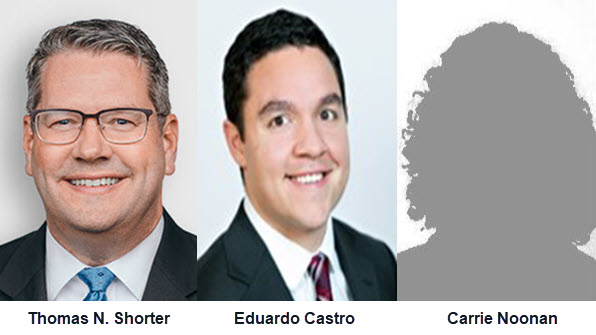Become a Patreon!
Abstract
Excerpted From: Thomas N. Shorter, Eduardo Castro, and Carrie Noonan, “We Have Met the Enemy and He Is Us”: Why the Legal Profession must Commit Itself to Health Equity, 16 Journal of Health & Life Sciences Law 16 (2022) (44 Footnotes) (Full Document)
 The COVID-19 pandemic has been a harrowing reminder of the stark health disparities that exist in the United States. Marginalized groups, such as Indigenous and Native American, Black, and Latino populations, are two to three times more likely to experience infection, hospitalization, and death due to COVID-19 compared to White populations. The principle of health equity--and making it a reality--calls on our society to remedy the ill of these kinds of health disparities. Simply put, health equity is the aspiration that everyone should have “a fair and just opportunity to be as healthy as possible.”
The COVID-19 pandemic has been a harrowing reminder of the stark health disparities that exist in the United States. Marginalized groups, such as Indigenous and Native American, Black, and Latino populations, are two to three times more likely to experience infection, hospitalization, and death due to COVID-19 compared to White populations. The principle of health equity--and making it a reality--calls on our society to remedy the ill of these kinds of health disparities. Simply put, health equity is the aspiration that everyone should have “a fair and just opportunity to be as healthy as possible.”
This begs the question: what does health equity have to do with lawyers? Certainly, worse outcomes due to COVID-19 for marginalized groups can be traced to inequitable distribution of health care resources, like increased barriers to testing and treatment and already existing higher rates of poor health. But focusing solely on our health care system as the sole cause of unequal health outcomes misses the forest for the tree.
Members of more vulnerable socioeconomic groups also face a higher likelihood of exposure to COVID-19 due to working, living, and transportation situations. One study found that individuals who worried about making ends meet were three times more likely to report the need to go to work, even if they were sick with COVID, which in turn, further spread the virus within workplace settings.
What makes people sick cannot always be treated in a patient room. Health equity is informed by this understanding and recognizes that reducing, and ultimately eliminating, disparities in health outcomes requires “removing obstacles to health such as poverty, discrimination, and their consequences, including powerlessness and lack of access to good jobs with fair pay, quality education and housing, safe environments, and health care.” In fact, addressing these “social determinants of health” has come within the purview of health care delivery.
Looking more closely at these societal factors reveals a more uncomfortable truth: it is attorneys who have enabled many of the social, economic, and/or environmental disadvantages that led to the unequal impact of the COVID-19 pandemic. It is the legal profession that permitted--and in some instances, directly enabled--marginalized communities to experience worse health outcomes.
A reckoning is long overdue for how we, in our role as legal counsel, have contributed to the disparities in health outcomes that have plagued marginalized and underserved populations. With the COVID-19 pandemic, confronting and remedying the role of the legal profession in health inequities has become that much more urgent. The time is now for us, as attorneys, to accept our role in the current state of health inequities and commit ourselves to making health equity a reality for all.
While the numerous examples cannot be encapsulated in just one article, the role attorneys and policymakers played in creating and permitting racial residential segregation illustrates how attorneys have contributed to the societal factors that keep people sick. But attorneys can also be a force for good health. Indeed, law and public policy, which attorneys directly shape in their day-to-day practice, can also provide a pathway to good health for many. Whether in public or private spheres, in large firms or as solo practitioners, we can and must incorporate health equity work into our practices to ensure that everyone has a fair and just opportunity to be as healthy as possible.
[. . .]
As the history of racial segregation shows, the legal profession cannot escape the painful truth that attorneys own some of the blame for health inequities in the United States. We must nonetheless examine and acknowledge the role we have played and make sure it does not continue. The time is now for those in the legal profession to commit to ameliorating the consequences of these injustices. If we can bravely confront our past and look towards the future, members of the legal profession can ensure that every person has a fair and just opportunity to be as healthy as possible.
THOMAS N. SHORTER is a partner with Husch Blackwell LLP, representing health care systems, hospitals, physicians' groups, and health care associations.
EDUARDO CASTRO is an associate attorney at Pines Bach LLP in Madison, Wisconsin.
CARRIE NOONAN, MHA, is Senior Healthcare Consultant for Husch Blackwell LLP.
Become a Patreon!


